Education Outcomes
We’re empowering a new generation of scientists and naturalists.
That’s why scientific study and conservation are at the heart of every Earthwatch expedition, and why we invest in creating unrivaled educational experiences for teachers and students of all backgrounds—including those who face financial or other obstacles to volunteering. Earthwatch has awarded fully funded fellowships to nearly 2,000 high school students to date through our Ignite and Girls in Science programs, and to almost 6,000 educators through our Teach Earth and Project Kindle fellowships. Hundreds more teachers and students participate in student group expeditions every year.
These programs have both immediate and long-lasting impacts. By helping environmental scientists collect crucial data for their research, every Earthwatch expedition helps protect our natural world in tangible ways. But after a week or more immersed in nature and engaged with peers, the impact of an Earthwatch expedition goes deeper than advancing scientific progress. Students and teachers alike report transformational life experiences: feelings of empowerment and awe, of renewed passion and purpose. Teachers return to their classrooms reinvigorated; students may discover a heightened sense of stewardship and a new excitement for science.
It was my first real exposure to doing research, especially such hands-on research with so much responsibility in my hands—and it turns out I love it.
Grace — 2018 Ignite fellow
Turning students into scientists
The research is clear: Science is best learned by doing. “When we allow our bodies to become part of the learning process, we understand better,” said cognitive scientist and Barnard College president Sian Beilock, co-author of a 2015 study that found students who took part in hands-on scientific learning showed deeper understanding and improved test performance. “Reading about a concept in a textbook or even seeing a demonstration in class is not the same as physically experiencing what you are learning about,” she said.
And doing is what Earthwatch is all about. Active participation in the scientific process is at the core of an Earthwatch expedition. By conducting real-world research, students gain a first-hand understanding of scientific inquiry in action—but also what it means to be a working scientist. Many are surprised to discover just how important the tiniest creature or measurement can be, how messy the work can get, and how much they enjoy it.
- More than half of Earthwatch student fellows go on to major in science in college.
- Earthwatch’s 1,942 student fellows have contributed approximately 136,000 hours of field research to advance scientific discovery and environmental conservation.
- 97% of Ignite alumni said the program helped them understand new possibilities in life, and 96% said their Earthwatch expedition instilled a lifelong interest in science.
Now that I'm back [home in Los Angeles], I find myself wondering what species of plants I'm passing on the freeway and seeing along the beach parking lots... This trip has inspired me to appreciate the bugs and plants around me in a way I'd never imagined before…This fellowship will affect me for as long as I am alive and able to speak to others about the great outdoors and what we can do to study and protect it. I feel like a real scientist. This has been priceless.
Amber — 2015 Ignite fellow
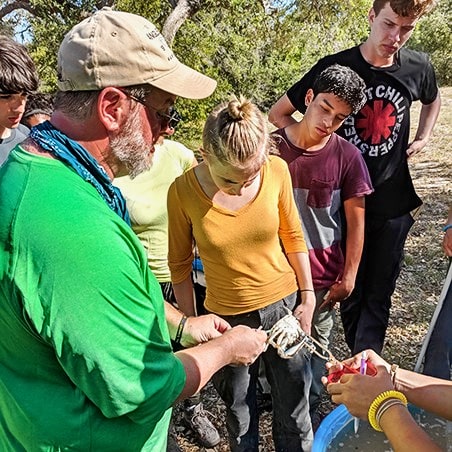
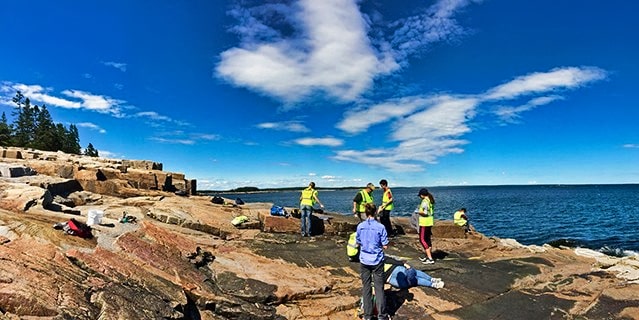
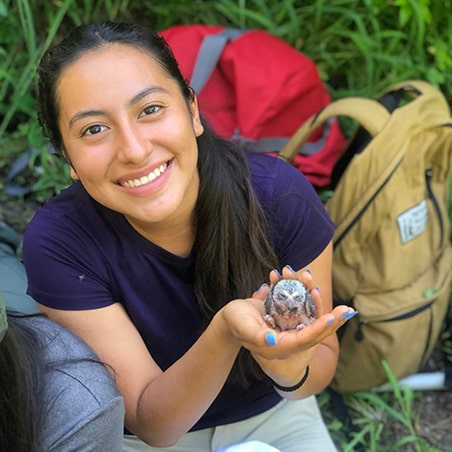
Ignite
In the field, our Ignite fellows have taken core samples and studied salt marsh microfauna to document historical sea-level fluctuations, helping scientists better understand the sea-level changes we’re witnessing today. They’ve analyzed estuary water quality and studied blue crabs and wolfberries in Texas, providing data that are crucial to the protection of the Whooping Crane.
These teens have banded and weighed owl nestlings and measured trees and habitats to identify the impact of climate change on forest owl breeding in Utah. They’ve helped quantify the benefits of meadow restoration on groundwater and carbon sequestration in Tahoe National Forest. They’ve surveyed wildlife in Montana to help scientists predict the geographic movement of bears and other species as climate change impacts their food supplies.
“I learned so many things. I learned what it means to be a scientist. I learned that anyone can make a positive impact on the environment. And, most importantly, I learned about myself. I learned that I am smart, and strong, and as cheesy as it sounds, I learned that I can do anything I set my mind to. This trip changed who I am and how I see the world.
Megan — 2015 Ignite fellow
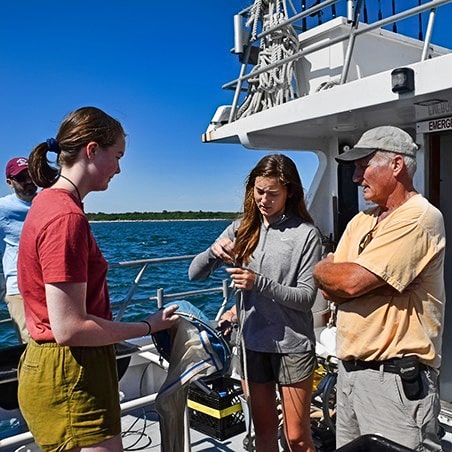
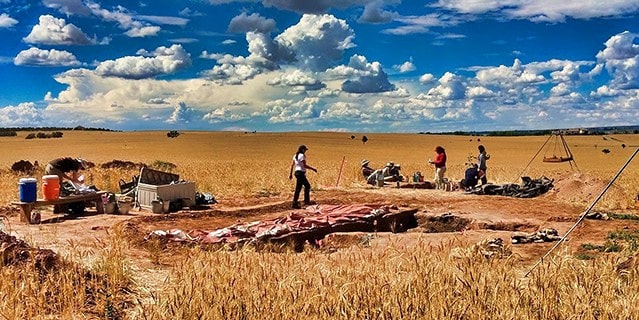
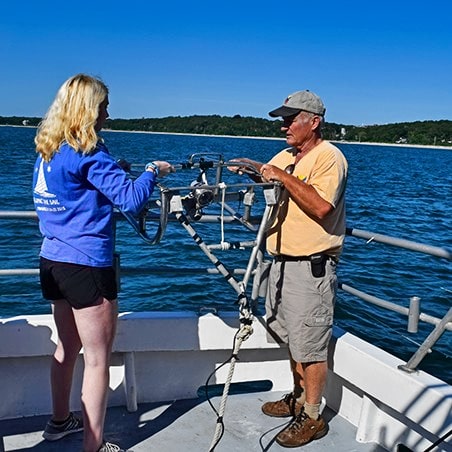
Girls in Science
Our Girls in Science fellows, meanwhile, have built and deployed underwater microphones and analyzed dolphin acoustic data with sophisticated sonic software—helping scientists better understand marine mammals and prevent mass strandings on Cape Cod. They’ve painstakingly excavated, cataloged, and analyzed ancient artifacts in the lab to advance ongoing historical research at an ancestral Pueblo dig site in Colorado. By studying the intertidal zone and recording sea lions, gray whales, and dolphins in the waters off of California, they’ve added to important Pacific coast data sets that ensure the protection of a valuable marine ecosystem.
After their week in the field, Girls in Science fellows report an increased interest in scientific careers, greater confidence in their ability to build things and perform advanced science, and a heightened curiosity about how machines and electronics work.
They also return with a deeper connection to nature and a stronger interest in sustainability: In post-expedition surveys, 100% of Girls in Science fellows said the experience increased their sense of personal connection to the natural world and increased their commitment to take action towards a sustainable environment.
“I had no strong women scientists to look up to and to inspire me. This is why Earthwatch was so important to me. For an entire week, I was able to meet and work with so many amazing and incredibly intelligent women scientists. This really changed my perception of what a scientist is.
Natalia — 2016 Girls in Science fellow
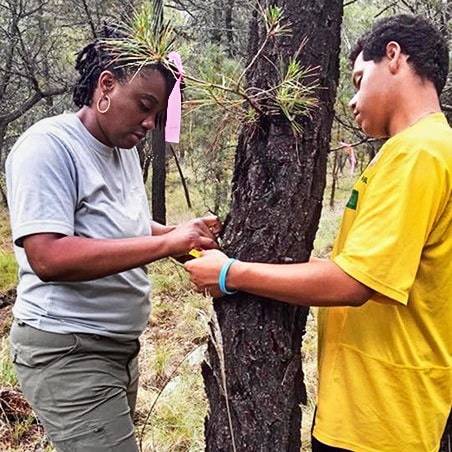
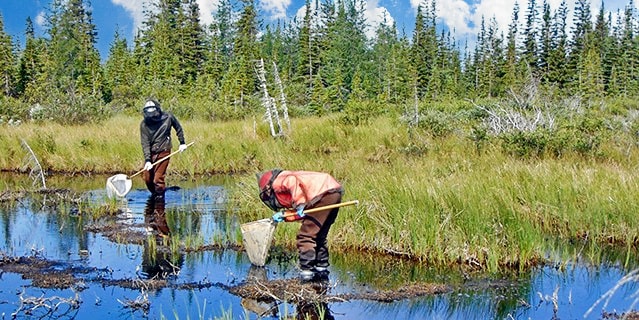
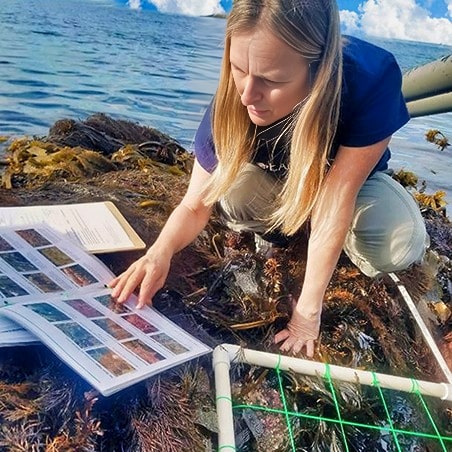
Teach Earth: Empowered to teach, with an exponential reach
We know students tend to get more out of doing science than simply learning about it in a classroom. However, educators often lack the comfort level to teach science as a hands-on activity. So, since 1975, Earthwatch has sent almost 6,000 educators into the field through our Teach Earth fellowship, where they conduct actual field research alongside university scientists and brainstorm hands-on lesson plans with their team of fellow teachers.
Those teachers return to their classrooms with renewed passion and restored confidence, ready to bring science to life through hands-on instruction and community activities. Over the course of their careers, each of those educators will reach hundreds or even thousands of students.
“Too often teachers sit in professional development classes and HEAR about how they should engage students with hands-on, problem solving experiences. On my Earthwatch expedition, I got to experience first-hand what engaging learning truly is, and this will make me a better teacher.
Erica Marlaine — 2019 Teach Earth fellow
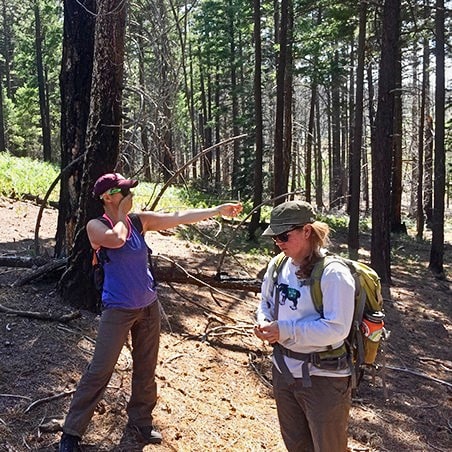
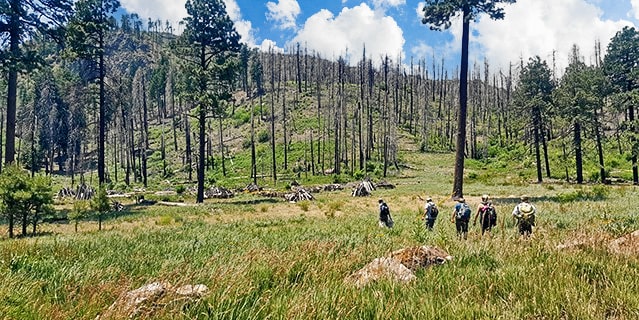
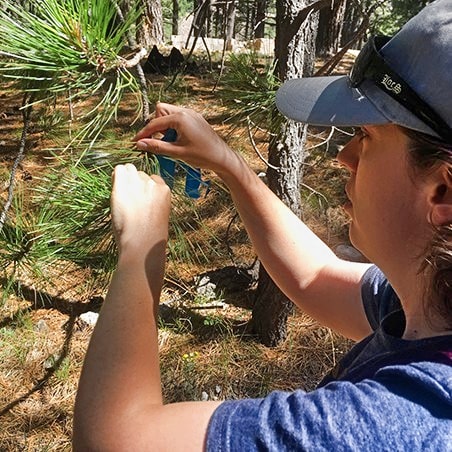
Project Kindle
Earthwatch’s Project Kindle fellowship helps teachers who are committed to bringing students on an expedition turn that goal into a reality. This fully funded expedition immerses high school teachers in hands-on field research. But it also includes workshops in leadership, fundraising, and other topics that can help teachers overcome common hurdles to organizing a school trip—whether it’s a lack of funding or buy-in from school administrators or a lack of experience in preparing a group of teens for a week or more away from home.
In 2019, five teams of Project Kindle fellows performed nearly 1,600 hours of field research. But what’s more, those three dozen teachers are now organizing upcoming expeditions for their students, multiplying the impact of each individual fellowship by sixfold or more. Some Kindle alumni, such as Ben Caraballo of East Harlem, N.Y., will even customize their curriculum around the experience and field a new team of students every year, creating a truly exponential impact.
Furthermore, we’ve found that Teach Earth and Project Kindle fellows often indirectly motivate those around them by providing a shining example of the can-do spirit in the pursuit of professional development, personal growth, and contributing to a cause that they care deeply about. Through this ripple effect, a single teacher can inspire an entire school.
Independent testing confirms that most Teach Earth, and Project Kindle graduates benefit from:
- Improved confidence when teaching science and the scientific process
- A greater connection to nature
- The ability to integrate local and global environmental issues and more hands-on learning into their curriculum
- The ability to promote critical thinking in the classroom
In turn, their students benefit from:
- Increased understanding of the role of science across disciplines
- Improved decision-making, problem-solving, and analytic skills
- The ability to transform abstract learning into concrete, real-life application
- Career development and excitement about STEM education
“I think what has been the most impactful for [my students] is the eye-opening experience of being immersed in such a rich, delicate, and highly biodiverse location and experiencing a typical workweek of a field biologist: the good, the bad, and the ugly.... Earthwatch has provided our students—students of color in particular—with access to real-life career experiences in the STEM fields that can expose them to new opportunities and career paths... some have even reconsidered their majors!
Ben Caraballo — 2016 Project Kindle fellow
Sign up for the Earthwatch Newsletter
Be the first to know about new expeditions, stories from the field, and exciting Earthwatch news.
Experience hands-on science in some of the most astounding locations in the world. Meet a community of like-minded travelers and return home with stories filled with adventure.
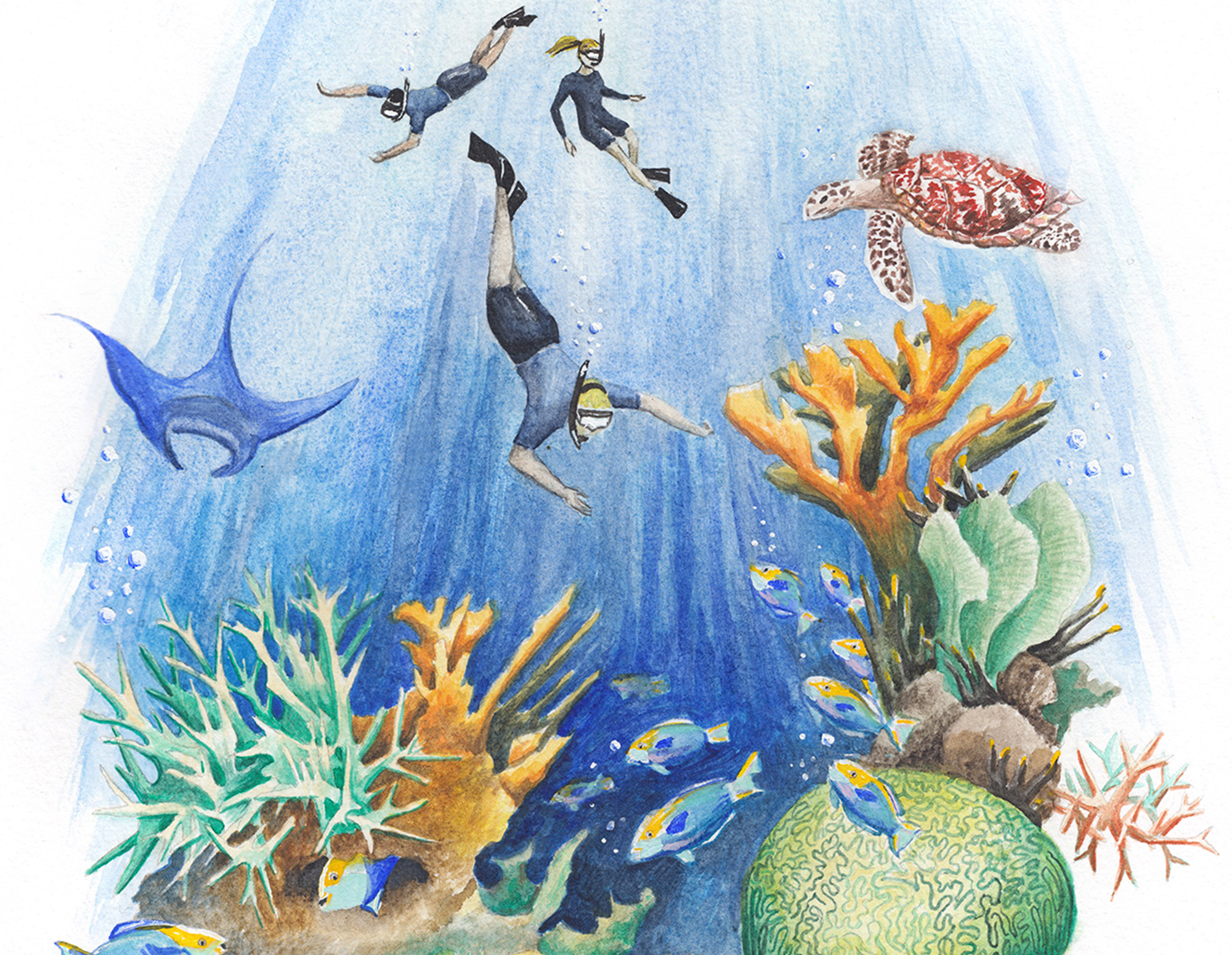
YOUR SUPPORT MATTERS
Earthwatch depends on donations—above and beyond what we raise from volunteers who participate on our expeditions—in order to deliver our global conservation mission. In fact, volunteer contributions provide only half of the total resources Earthwatch needs to sustain over 40 field research expeditions, a wide variety of educational programs, corporate sustainability trainings, and more each year.